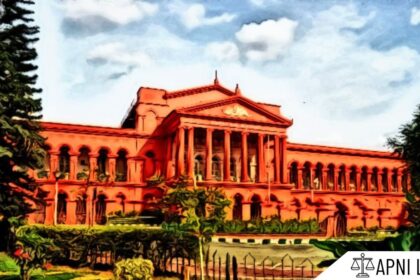Introduction
The Indian Constitution is not only a legal document but also a guide for building a just and fair society. While Fundamental Rights guarantee liberty and equality, the Directive Principles of State Policy (DPSPs) provide the vision to achieve social and economic justice. Enshrined in Part IV of the Constitution, from Articles 36 to 51, these principles are non-justiciable, meaning they cannot be enforced in courts. Yet, they carry immense significance as they lay down the goals that governments should strive to achieve. The framers borrowed the idea of DPSPs from the Irish Constitution, but they tailored it to India’s unique conditions, ensuring that development went hand in hand with justice.
Nature and Features of Directive Principles
Directive Principles serve as moral obligations for the state. Although courts cannot compel governments to follow them, they form the foundation for governance. Their key feature lies in balancing individual rights with social responsibility. For instance, while Fundamental Rights safeguard personal liberty, Directive Principles push the state to ensure that liberty is meaningful through access to education, health, and economic security. This dual structure prevents the Constitution from becoming either too individualistic or too authoritarian.
Another important feature is their flexibility. The Constitution does not provide a rigid method for implementing Directive Principles, allowing governments to interpret and apply them based on the needs of the time. They are also dynamic, meaning their relevance continues to evolve with changing social and economic conditions. When India gained independence, poverty, illiteracy, and inequality dominated the social structure. The DPSPs gave Parliament a framework to enact progressive laws such as land reforms, minimum wages, and expansion of public education. Even today, they influence debates on environmental protection, gender equality, and the welfare state.
Classification of Directive Principles
The Directive Principles are often grouped into three broad categories: social and economic principles, Gandhian principles, and liberal-intellectual principles. The social and economic principles seek to reduce inequality and ensure welfare measures, such as Article 39, which directs the state to ensure fair distribution of resources. Gandhian principles emphasize rural development, village panchayats, and the promotion of cottage industries, reflecting Mahatma Gandhi’s vision for self-reliant villages. Liberal-intellectual principles, on the other hand, focus on international peace, uniform civil code, and separation of powers between judiciary and executive.
Although these categories are for academic understanding, in practice, they work together to push India toward a welfare state. Over time, legislations such as the Right to Education Act, consumer protection laws, and panchayati raj reforms have been seen as steps toward fulfilling the DPSPs.
Importance in Constitutional Framework
Directive Principles hold a special place in India’s constitutional scheme. They act as a measure of performance for governments, reminding them that their duty extends beyond political power to the creation of a just order. Citizens often evaluate political promises against the DPSPs, making them a moral compass for accountability.
Moreover, the Supreme Court has frequently emphasized their importance. In the case of State of Kerala v. N.M. Thomas (1976), the Court held that Fundamental Rights and Directive Principles should be read together. Later, in Minerva Mills v. Union of India (1980), the Court declared that harmony between Fundamental Rights and DPSPs is part of the Constitution’s basic structure. This shows that even though they are not legally enforceable, they remain central to India’s constitutional philosophy.
The DPSPs also serve as a link between the Constitution and public policy. Many welfare schemes, such as mid-day meals in schools, legal aid for the poor, and rural employment guarantee programs, are inspired by these principles. By bridging the gap between rights and responsibilities, the DPSPs ensure that democracy is not reduced to a mere political process but extends to social and economic justice.
Directive Principles and Fundamental Rights: A Delicate Balance
One of the most important debates in Indian constitutional law is the relationship between Fundamental Rights and Directive Principles. At times, they appear to be in conflict. For example, the right to property once clashed with land reform laws aimed at reducing inequality. Initially, courts prioritized Fundamental Rights over DPSPs, striking down laws that violated property rights. However, over the years, judicial interpretation shifted toward giving greater importance to Directive Principles.
The 25th and 42nd Constitutional Amendments tilted the balance in favor of DPSPs, and the Kesavananda Bharati case introduced the doctrine of basic structure, which stressed harmony between both. Today, the Constitution is interpreted in a way that ensures neither Fundamental Rights nor DPSPs overshadow each other. Instead, they complement one another, ensuring liberty with equality and justice with fairness.
Role in Shaping India’s Welfare State
The framers of the Constitution envisioned India as a welfare state, not just a political democracy. Directive Principles act as the blueprint for this vision. They require the state to reduce inequality, provide adequate means of livelihood, ensure free legal aid, and protect the environment. Without these guiding principles, democracy could easily become limited to elections and political power struggles. By mandating welfare measures, the DPSPs bring the ideals of justice, equality, and fraternity closer to reality.
For instance, Article 39A led to the establishment of legal aid services, ensuring that even the poorest citizens have access to justice. Article 48A inspired environmental laws that protect forests and wildlife. Similarly, Article 45 laid the foundation for free and compulsory education, which later became a Fundamental Right under Article 21A. Each of these examples highlights the transformative impact of DPSPs on public policy.
Challenges in Implementation
Despite their importance, Directive Principles face challenges in implementation. Their non-justiciable nature often means governments can ignore them without facing legal consequences. Political priorities, resource constraints, and conflicting interests sometimes delay their realization. For example, the Uniform Civil Code under Article 44 remains a subject of debate even after seven decades of independence. Similarly, while Article 47 directs the state to improve public health, India continues to grapple with underfunded healthcare systems.
Yet, the presence of these principles ensures that these issues remain part of the national agenda. They act as a constant reminder that democracy cannot stop at elections but must translate into meaningful change in people’s lives.
Frequently Asked Questions
Why are Directive Principles not legally enforceable?
The framers wanted to give flexibility to future governments. They recognized that enforcing these principles required resources and gradual change, so they made them guiding ideals instead of binding rules.
How do Directive Principles influence governance in India?
They shape public policies, welfare schemes, and judicial interpretations. From land reforms to education and environmental protection, many laws trace their roots to DPSPs.
Can Directive Principles override Fundamental Rights?
No, they cannot override Fundamental Rights. However, courts interpret both together to ensure balance, with neither side dominating the other.
Conclusion
The Directive Principles of State Policy are among the most visionary aspects of the Indian Constitution. Though not enforceable by courts, they guide the state in creating social and economic justice. They serve as a moral compass, reminding governments of their duty to work for the welfare of all citizens. Their influence can be seen in progressive legislation, welfare programs, and judicial rulings that promote equality and fairness. By balancing liberty with responsibility and democracy with social justice, the Directive Principles ensure that the Constitution is not just a legal framework but also a promise of a better future for every Indian.
For any specific query call at +91 – 8569843472








